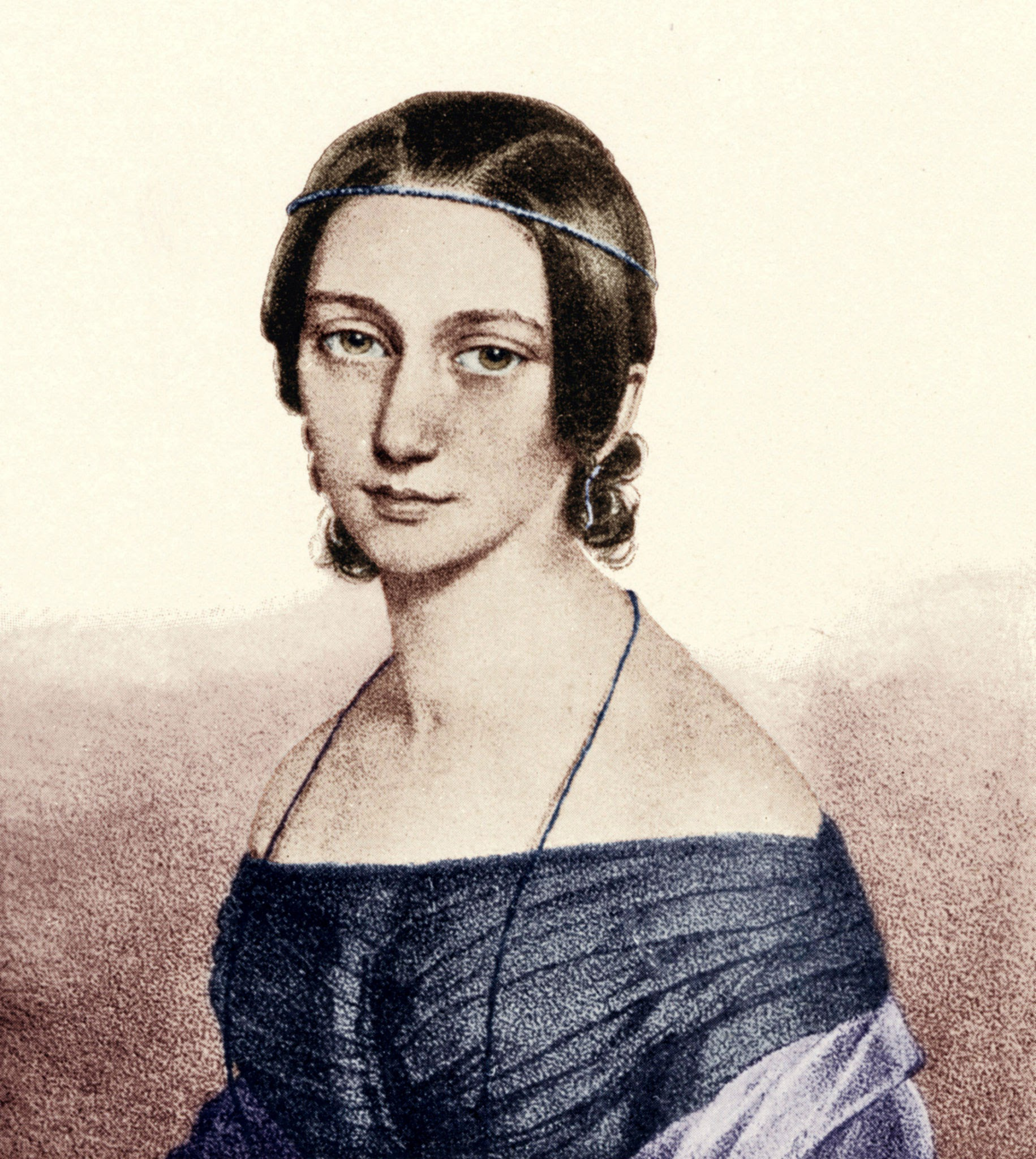created 2025-05-17, & modified, =this.modified
Clara Schumann (1819-1896) was a German pianist, composer and piano teacher. She was one of the most distinguished pianists of the Romantic era.

She was a child prodigy, and began touring with her father. Her father was controlling, and planned her life to the smallest detail with hours of study and practice following the method of his own book (“Wieck’s Piano Education for a Delicate Touch and Singing Sound”).
While performing she met another gifted pianist who had been invited, Robert Schumann who admired her play so much he dropped his pursuit of law to study with her father.
An anonymous music critic, describing her Vienna recitals, said: “The appearance of this artist can be regarded as epoch-making… In her creative hands, the most ordinary passage, the most routine motive acquires a significant meaning, a colour, which only those with the most consummate artistry can give.”
Robert Schumann
In February 1854, Robert Schumann had a mental collapse, attempted suicide, and was admitted, at his request, to a sanatorium in the village of Endenich near Bonn, where he stayed for the last two years of his life.
For the entire two years of Robert Schumann’s stay at the institution, his wife was not permitted to visit him, while Brahms visited him regularly. When it was apparent that Robert was near death, she was finally admitted to see him. He appeared to recognize her, but could only speak a few words.
Brahms
During Robert Schumann’s last years, confined to an asylum, Brahms was a strong presence for the Schumann family. His letters indicate his strong feelings for Clara. Their relationship has been interpreted as somewhere between friendship and love, and Brahms always maintained the utmost respect for her, as a woman and a talented musician.
Letters between the two
Brahms wrote to Robert :
“How long the separation from your wife seemed to me! I had grown so used to her uplifting presence and had spent such a magnificent summer with her. I had grown to admire and love her so much that everything seemed empty to me and I could only long to see her again.”
To Clara:
“Your portrait is looking kindly down upon me and I should like to stay the night here, lost in thoughts of you; possibly you are thinking of me too. I feel as if you were.
Oh, if only the time could go by quickly. I long for peace—for you. If only you could be quite happy again! You have suffered long and severely enough… At the present moment I am thinking too much of you, and I get no peace… I have resolved to get some fine music paper and occasionally send you a song or a melody instead of my words. It is in any case more eloquent than my words, but I can’t send it to you without music paper!”
Marriage Diaries
The Schumann Marriage diaries provide a vivid portrait of the unique artistic and personal union between two renowned musicians. For the first four years of their marriage, Robert and Clara Schumann kept a joint diary, recording their entries, at least initially, on alternate weeks. Begun on September 13, 1840, the day after their marriage, the diary opens with guidance from Robert: “This little book … has a very intimate meaning; it shall be a diary about everything that touches us mutually in our household and marriage.”
The diaries reflect the harmony as well as the discord in their marriage. Robert and Clara describe in intimate detail their honeymoon period, the births of their children, their busy social lives, travels throughout Europe, financial problems, separations, and reunions. The book also evokes the artistic milieu of nineteenth-century Germany. The Schumanns came in contact with many musicians, including their close friends Felix Mendelssohn and Franz Liszt, and recorded their insightful reactions to the artists and their music.
The marriage diaries cover a fertile period in Robert Schumann’s life, during which he wrote the Spring Symphony, the Piano Concerto, most of his chamber music, his first oratorio, “Paradise and the Peri,” and numerous songs. They reflect the frenetic pace at which he worked, as well as his growing bouts of depression, his ambivalent response to Clara’s decision to return to the concert stage after a prolonged hiatus, and her anxiety in the face of Robert’s changing moods.
This edition includes the couple’s travel book, written during their stressful concert tour of Russia in 1844, which marked the end of the marriage diaries; Robert Schumann’s descriptions of Russian customs; and the poems he wrote in Moscow - all of which provide a fascinating and uniquely detailed glimpse at what it was like to travel in Russia at the time.